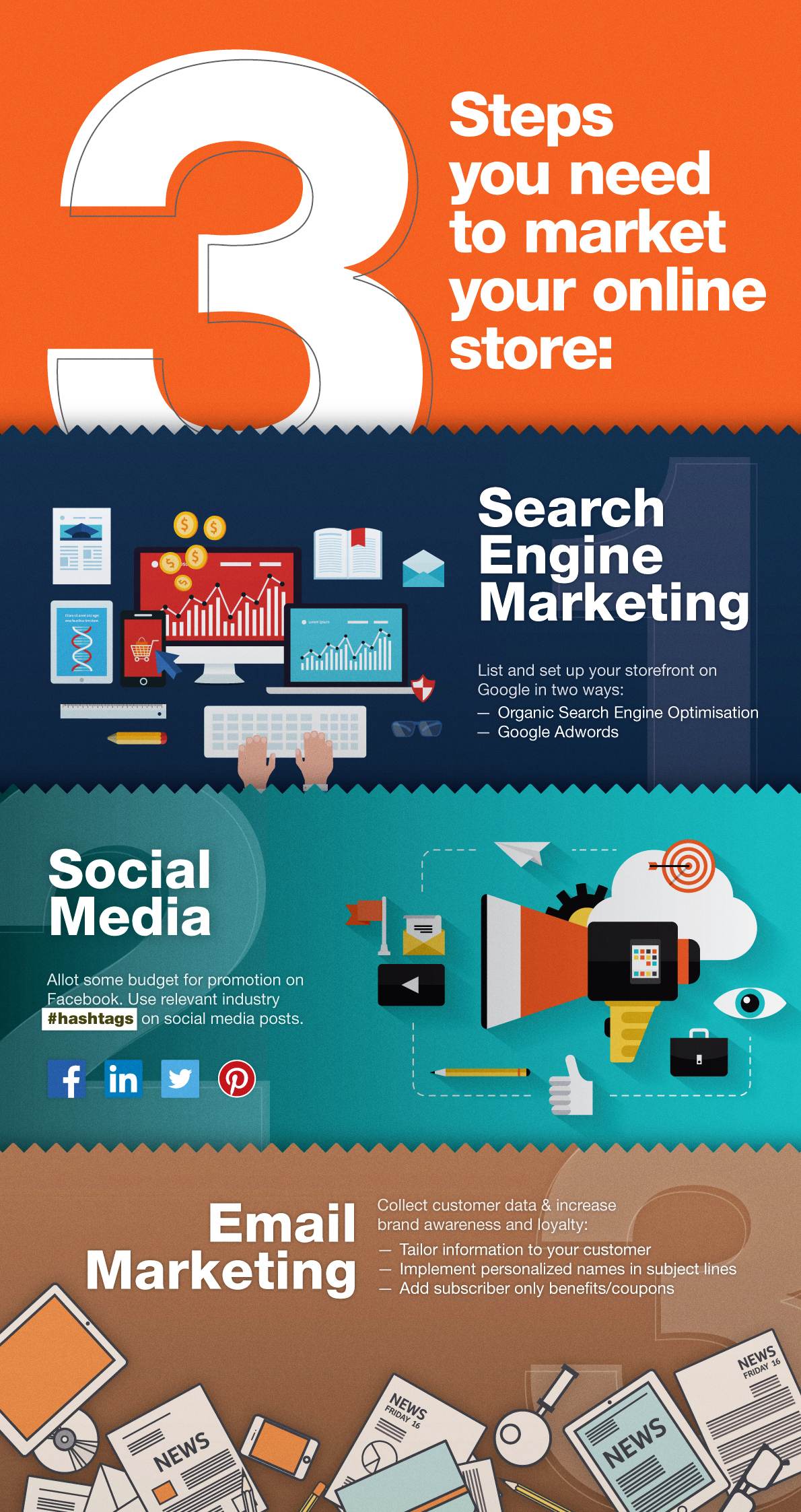A solid customer database is one of the most valuable marketing tools an online store can have – quite simply, existing customers are easier to sell to than new ones.
E-Commerce platforms such as Shopify, Bigcommerce and Wix eCommerce have deleted the need to know anything about coding, merchant facilities and hosting. The smallest businesses, creating handmade goods, can now offer their products to the world from their home. And whilst these online platforms are providing small-business owners endless selling opportunities, it’s often difficult for brands to attract their initial customers in the digital space.
As a marketing expert, I’m approached by many business owners to help market their e-stores. These are often start-up businesses, with limited budgets. Whilst marketing doesn’t need to be expensive, if you’re not prepared to invest it’s impossible to establish yourself in the crowded online space.
Once you’ve set up your online store, here are my top marketing tips for what’s next:

Receive business news and advice, free, straight to your inbox – Sign Up Here
Search-engine marketing
Search-engine marketing directly focuses on making your business easier for new customers to find. Being an online store, you don’t have the benefit of having a physical shop front where customers might just walk past and start browsing. This means you need to spend resources on making your store easy to stumble upon online.
Consider Google a shopping mall, and your listing as your storefront. You want to land your business a spot right near the entrance, with a nice big sign. And that doesn’t happen by accident.
Search-Engine Marketing for your e-store might involve an organic Search Engine Optimisation program, or Google AdWords.
Social media
The benefits of these social platforms have completely changed the landscape of business and made it possible for boutique online retailers to speak to thousands at a low cost.
Unfortunately, social platforms for business aren’t what they used to be. Facebook, and soon Instagram, are making it increasingly difficult to reach customers and there are benefits on platforms such as Pinterest which remain largely untouched.
For Facebook, you’re going to have to spend money on promoted posts to get your content seen. And whilst Instagram will soon be the same, be sure to make use of hashtags to find the right audience.
Email marketing
One of my personal favourites. A solid customer database is one of the most valuable marketing tools an online supplier can have – quite simply, existing customers are easier to sell to than new ones.
Having an ongoing conversation with your customers builds loyalty, increases visibility – it keeps reminding them about your business – and is completely trackable.
That’s why it’s so important to ensure you’re collecting customer data, and using it. Traditionally, brand emails have received a bad rep for clogging up people’s inboxes. However, if done right, they can be something your customers look forward to receiving, and be directly responsible for growing your business.
Remember to include information tailored to your customers, which can be achieved through segmenting your data. For example, if you’re selling kids clothes, divide your list into boys’ clothes customers, or girls’ clothes customers, and possibly by kid’s ages. That way, you can send different emails to these groups which directly showcase what would be of most interest to your customer. Also don’t forget the value of personalised names in the subject line, and adding subscriber-only coupons to your emails.
If you find your new online store is a bit stuck, it always helps to speak with a professional. Ask for recommendations from the online community and make sure you shop around to find a budget which works for you.
Madeline Avery, Director, Birdcage Marketing
Receive business news and advice, free, straight to your inbox – Sign Up Here















